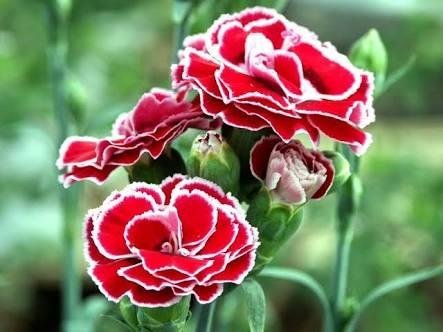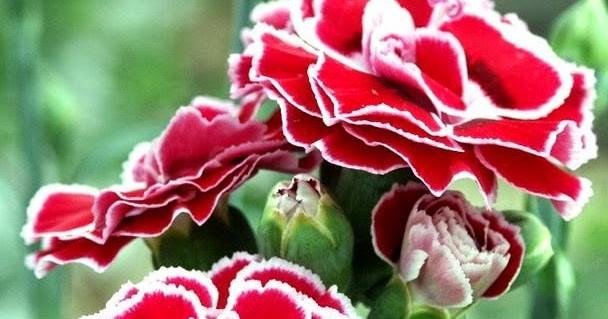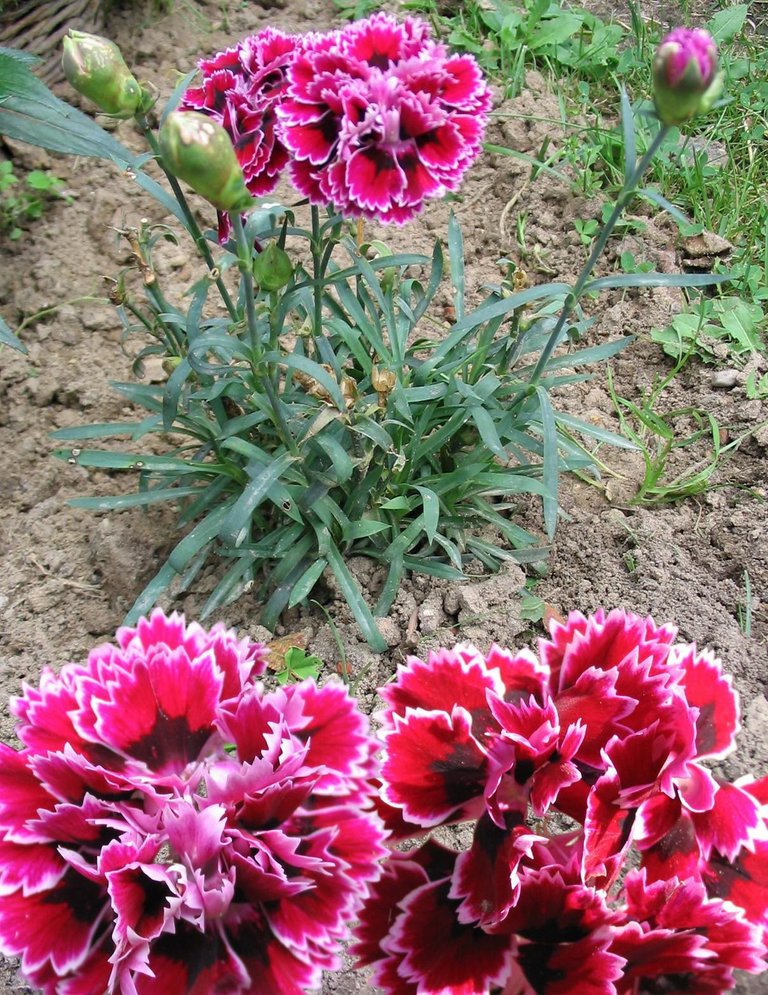Carnation flowers have bright and colorful colors. This plant can reach a height of up to 2 meters, but in order to grow upright, it should be tied with a supporter. The center line of the carnation plant can reach 1 cm and usually swells in the book / segment. Carnations can last for 18-20 months.

Carnations are also called telepar flowers, named scientific Dianthus caryophyllus is an ornamental plant and pots from the Mediterranean region. There are two types of carnation plant that is manifold one flower for each stalk and type of spray many flowers for each stalk.
This carnation plant has the characteristics of carnation flower that compound leaf, elongate, and sharp, Specification of carnation flower there is single and single berkelopak there are double. The shape of the carnation of the crown edge of the jagged crown, the color of white or pink flowers. Plant propagation by separating seedlings or seeds. Plants grow well in the highlands and fertile soils. Habitat of carnation flower is in area with medium temperature 20-27 degree celcius with minimal sunshine. Cultivation of this carnation flower with seeds but the carnation of the carnation can also be done through the existing buds on the end of the stalk.



Benefits and Benefits of Carnation For Health:
- Diarrhea
- urinary tract infection
- pee stone
- Constipation
- Dizzy
- Eczema
- Smooth urinate
- Clean the blood
- Smooth the process of giving birth
The Gynecology of Carnation Flowers:
The carnation flower contains saponins, a type of diancinenosid A, B, C, D, E, F, G, and H. Arabinopiranosil hederagenin glukopiranosil glukopiranosid, chryseriol glucoside, isoorientin glucosid, glucosid isovitexin, and sitosterol glukopiranosid.